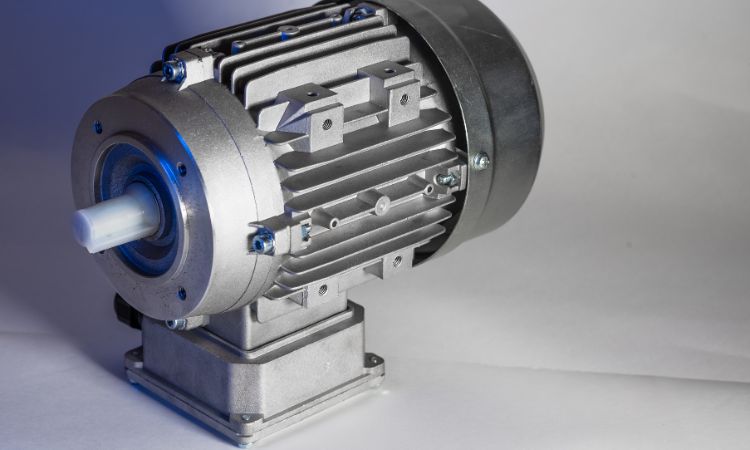Electric motors are the unseen engines driving much of today’s industrial and consumer advancements. From household appliances to massive manufacturing plants, and electric vehicles to renewable energy systems, these compact powerhouses convert electrical energy into mechanical motion with unmatched efficiency. Their ability to provide controlled, precise, and reliable power makes them fundamental to the smooth functioning of countless applications.
The evolution of electric motors has mirrored technological progress. Early designs have given way to smart, high-efficiency variants, driven by advances in materials, electronics, and design innovation. Today’s electric motors aren’t just about raw power; they represent a seamless blend of intelligence, sustainability, and adaptability—key to unlocking the future of automation, transportation, and energy conservation.
Expert Market Research Highlights: India Electric Motor Market
Expert market research underscores the rising significance of the India Electric Motor Market, which is witnessing a surge fueled by expanding industrialization, infrastructure projects, and a shift toward electric mobility. This region’s rapid urbanization and government-led initiatives promoting energy efficiency and renewable energy integration are creating fertile ground for electric motor advancements. The research reveals that demand is increasing across sectors such as automotive, manufacturing, agriculture, and consumer appliances, driving innovation in motor efficiency and smart control systems. Expert market research also points to increased focus on localized manufacturing and technological collaborations to meet India’s unique market needs, indicating a promising trajectory for electric motors in the region.
India Electric Motor Market: Powering a Nation’s Progress
India’s electric motor market is experiencing dynamic growth as it accelerates its industrial and infrastructural ambitions. The country’s push toward electrification in transportation—especially electric two-wheelers and three-wheelers—is amplifying demand for efficient and durable electric motors. Furthermore, the expansion of sectors like textiles, chemicals, and renewable energy is fueling the need for motors that can deliver high performance with minimal energy loss.
In addition, government policies emphasizing Make in India and energy conservation programs have stimulated investments in advanced motor technologies. Local manufacturers are increasingly adopting precision engineering, automation, and digitization to enhance motor efficiency and comply with global standards. This regional momentum not only supports India’s sustainability goals but also positions it as a burgeoning hub for electric motor innovation.
The Anatomy of Efficiency: How Electric Motors Drive Innovation
Efficiency is the cornerstone of modern electric motor design. Today’s motors are crafted to maximize output while minimizing energy consumption and waste heat. Innovations such as permanent magnet synchronous motors (PMSM) and brushless DC motors have revolutionized applications that require precise speed and torque control, like robotics, electric vehicles, and HVAC systems.
Materials science has also played a pivotal role. The use of rare-earth magnets, advanced insulating materials, and improved winding techniques have pushed motor efficiencies closer to theoretical limits. Additionally, integrated electronics and sensors enable smart monitoring, predictive maintenance, and adaptive control, turning simple motors into intelligent components of broader industrial ecosystems.
Electric Motors in Renewable Energy and Sustainable Solutions
Electric motors are integral to the green energy transition. Wind turbines, solar tracking systems, and electric pumps for irrigation rely on advanced motors to function efficiently. In particular, the rise of electric vehicles—cars, bikes, and buses alike—depends on high-performance electric motors that balance power, range, and reliability.
The electrification of traditionally diesel-powered machinery in agriculture, mining, and construction is further driving demand for motors that are rugged yet energy-efficient. These shifts not only reduce carbon footprints but also improve operational costs, making sustainability economically viable. The future of electric motors is deeply entwined with sustainable development goals.
Transforming Transportation: The Electric Motor Revolution
Transportation is undergoing a seismic shift thanks to electric motors. From e-bikes navigating congested city streets to electric trucks hauling goods across long distances, motors are enabling quieter, cleaner, and more efficient movement. Innovations like regenerative braking, variable speed drives, and compact high-torque designs have broadened electric motor applications in this sector.
Public transit systems incorporating electric buses and ferries further demonstrate motors’ transformative power. By eliminating fossil fuels and reducing noise pollution, electric motors are central to building cities that prioritize health, sustainability, and quality of life.
Industry 4.0 and Smart Manufacturing: The Motor’s New Role
The fourth industrial revolution, or Industry 4.0, hinges on automation, connectivity, and data-driven decision-making—domains where electric motors are key players. Modern motors embedded with sensors and communication modules provide real-time data on performance, enabling predictive maintenance and reducing downtime.
This smart integration helps manufacturers optimize energy usage, extend equipment life, and improve production quality. As robotics and automated guided vehicles (AGVs) become commonplace, electric motors with sophisticated control systems ensure precision and reliability, keeping factories agile and competitive.
Challenges and the Road Ahead
Despite rapid advancements, the electric motor sector faces challenges including supply chain constraints for raw materials, especially rare-earth elements used in magnets. There are also ongoing efforts to reduce costs and enhance recyclability to align with circular economy principles.
The future points toward continued research into alternative materials, motor designs, and manufacturing methods that will further improve performance and sustainability. Hybrid systems combining electric motors with other energy technologies are also on the horizon, broadening application scope and efficiency.

